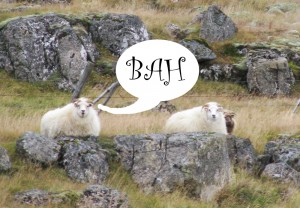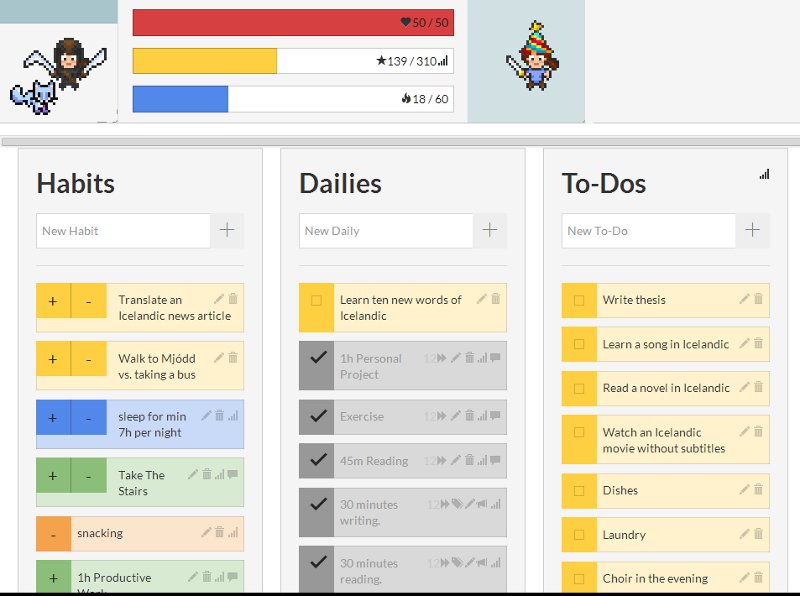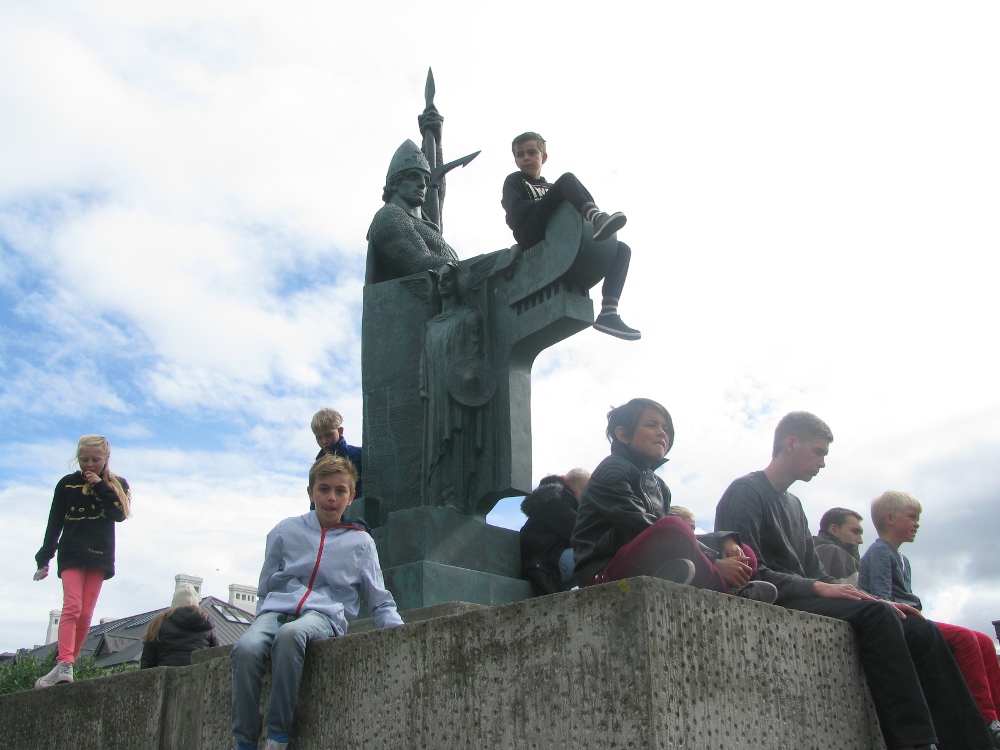Dive right in! Posted by hulda on Jan 16, 2014 in Icelandic culture, Uncategorized
 How can you apply learning in practice if you don’t live in Iceland? It’s entirely possible, although it will naturally take you some extra effort. It will also pay you back well if you ever chance to visit Iceland – in some situations it’s good to instinctively know what to say, such as “hjálp” (= help) , “passaðu þig!” (= be careful!) or “eina með öllu!” (= one hot dog with everything). The sources you can use for learning are everywhere, and sometimes they lie in places you didn’t think or know to look at.
How can you apply learning in practice if you don’t live in Iceland? It’s entirely possible, although it will naturally take you some extra effort. It will also pay you back well if you ever chance to visit Iceland – in some situations it’s good to instinctively know what to say, such as “hjálp” (= help) , “passaðu þig!” (= be careful!) or “eina með öllu!” (= one hot dog with everything). The sources you can use for learning are everywhere, and sometimes they lie in places you didn’t think or know to look at.
Reading the news is a great exercise, to name one example of an easily available language immersion source. The text you need to translate will be short and compact, and as a “side effect” you’ll gain insider’s knowledge about Iceland, because Iceland is often more than what makes the international news. Besides if there’s ever a volcanic eruption over here – you guessed it, we tend to know it first! Occasionally the news can be a bit difficult to figure out so if you’re not yet quite confident in your skills you can first find the piece of news at the Grapevine in English and then go to either of the largest news sites, Vísir (link) or MBL (link), to find the same piece of news there. Already knowing the gist of the article helps you a great deal and doesn’t count as cheating, at least not in my opinion. 😉
Another one that you can easily use is RÚV, the National Broadcasting Service, (link) and especially Sarpurinn (link) which collects news from the radio. This is more useful if you already have some basic knowledge on the language because there’s nothing to help you out, but it does train your ear on understanding the language.
Above pictured: the guy who started Reykjavík + his Reykjavíkingurs.
For something less formal there’s I Love Reykjavík (link), a blog by Auður Ösp. It’s a must-read for anyone planning a trip to Reykjavík and nowadays includes a podcast called “Learn (Pretty Useless) Icelandic” (link) which is quite hilarious. There’s not much material in there yet but I’ll definitely be following it.
Or how about watching an Icelandic movie? They’re easier available than you’d think. Check Icelandic Cinema Online (link) where you can rent Icelandic movies for cheap or even watch them for free. Clicking the info on each movie shows you for example whether or not they have English subtitles – they usually do. Watching foreign movies with subtitles in your own language is surprisingly efficient in helping you learn a language, as my generation of English learners can tell you.
While you’re looking at all of the above, wondering if you’ll ever be capable of keeping up with them all, why not try including them in your HabitRPG (link)? HabitRPG, as the name suggests, is an online game that helps you build good habits and guides you over those to-dos that feel too daunting to even begin to work on by rewarding you for each achievement. There are three categories that vary according to what you deem useful for yourself: habits, dailies and to-dos. Want to learn ten words of Icelandic? Put it on the to-do list. If you don’t immediately learn them, no harm done, they’ll be there waiting for you.
Want to build a habit of learning ten words of Icelandic f.ex. weekly? Then put them on the habits list. To-dos, once completed, disappear from the list but habits stay. If you happen to be in a real language learning rush, put learning ten words of Icelandic in your dailies… that means you’re challenging yourself to learn ten new words each day. Only select this option if you’re really dedicated to working on your vocab (or are a masochist)!

Reading both 30 min and 45 min daily? Such combinations occur when you partake in the challenges, which sometimes overlap each other in what they put in your dailies -section. 😀
Or… how about coming over here to learn Icelandic over the summer? The Árni Magnússon Institute offers summer courses for Icelandic learners (link) that are meant for people who already know the basics of Icelandic, or at least as much as is taught in Icelandic Online 1 (link). The amount requested isn’t actually that much, as you will see. 😉 You could even combine all the above sources and put them in your Habit RPG: making a habit of studying Icelandic Online, making vocabulary learning your daily goal, putting applying for the summer course on your to-do list… – and don’t forget the sources mentioned in the New Year’s post either because you could also follow the Berglind Festival and translate at least one joke to yourself either daily or as a habit.
Here’s something you can challenge yourself with right away: the Icelandic numbers are not as straight-forward and easy as you’d think. Their form changes according to whether they’re in plural or singular, what gender they take and what case… I would say learning how to use them merits a whole blog post of its own, and that by the time you’re capable of using them without thinking which form you should choose you’ve become quite fluent in Icelandic as well!
August 1954 an advertisement was published in the Morgunblaðið: “Erla Þorsteinsdóttir, stúlkan með silkimjúku röddina syngur á miðnæturskemmtun í Austurbæjarbíói í kvöld kl. 11,15. Aðeins þetta eina sinn.” “Erla Þorsteinnsdóttir, the girl with silk-soft voice sings at the midnightfest in Austurbæ’s bio tonight at 11.15 o´clock (p.m.). Only this once.”
Thankfully the first concert of Erla, then 21 years old, did not prove her last, rather it made her immediately famous in Iceland. To this day she remains one of Iceland’s most loved singers and no wonder, her voice really is lovely.
Kata rokkar (link). Many of you might know Björk’s version better – I tried to find lyrics to this song but only found the Björk version (link). It’s not too different though so it could still be helpful.
Þrek og tár (link), sung with Haukur Morthens. This may be her most loved song and one of the saddest, most bitter-sweet ones as well. Lyrics are included.
Vagg og Velta (link). This one might sound familiar! 😀

Build vocabulary, practice pronunciation, and more with Transparent Language Online. Available anytime, anywhere, on any device.
About the Author: hulda
Hi, I'm Hulda, originally Finnish but now living in the suburbs of Reykjavík. I'm here to help you in any way I can if you're considering learning Icelandic. Nice to meet you!






Comments:
Albert:
Hello! I have been trying during 2 years to learn icelandic but I can say it is a reaaaaly difficult language 🙂 thanks for the post